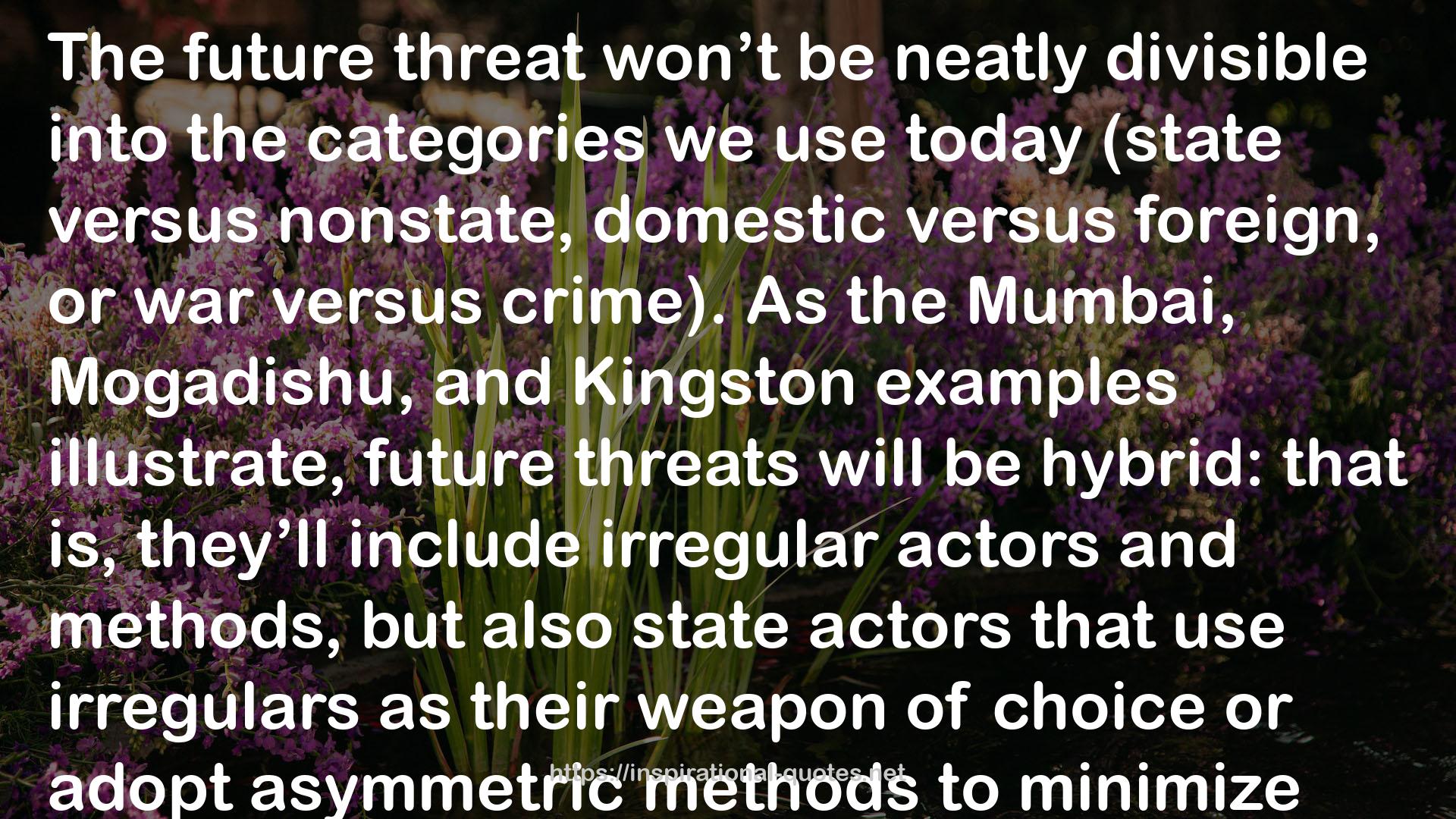" The future threat won’t be neatly divisible into the categories we use today (state versus nonstate, domestic versus foreign, or war versus crime). As the Mumbai, Mogadishu, and Kingston examples illustrate, future threats will be hybrid: that is, they’ll include irregular actors and methods, but also state actors that use irregulars as their weapon of choice or adopt asymmetric methods to minimize detection and avoid retaliation. Neither the concept nor the reality of hybrid conflict is new—writers such as Frank Hoffman, T. X. Hammes, and Erin Simpson have all examined hybrid warfare in detail. At the same time, Pakistan’s use of the Taliban, LeT, and the Haqqani network, Iran’s use of Hezbollah and the Quds Force, or the sponsorship of insurgencies and terrorist groups by regimes such as Muammar Gadhafi’s Libya, Saddam Hussein’s Iraq, and the Soviet Union, go back over many decades. "
― David Kilcullen , Out of the Mountains: The Coming Age of the Urban Guerrilla
